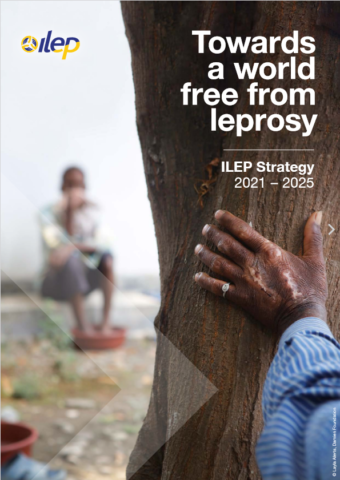
ILEP Strategy 2021-2025
ILEP is pleased to announce its new strategy for 2021-2025. The strategy was developed through consultation in early 2021 with a wide range of internal and external stakeholders. This was followed by a steady process of determining priorities and the areas in which ILEP could make the greatest impact. ILEP members continue to be united around the shared vision of a world free from leprosy. Towards that vision, the new strategy comprises five key strategic goals that are seen as potential global ‘game-changers’. The ILEP Federation collectively aims to work towards achievement of these goals through active collaboration, together and with other partners
The key strategic goals are:
Leprosy capacity
Goal: Development of a global framework and strategy to build and sustain leprosy capacity.
The challenges around the continued erosion of leprosy expertise are well known. At the ILEP Conference on leprosy capacity in 2020, participants agreed that ILEP has an important role to play in supporting countries to maintain leprosy know-how. We aim by 2025 to see a comprehensive training and capacity strategy in operation in more than 10 countries, normally integrated with other health conditions such as Skin-NTDs.
Globally consistent leprosy data
Goal: Globally consistent leprosy data standards and data collection methodologies, leading to accurate reporting for improved programme planning and monitoring.
The WHO Global Leprosy Strategy 2021-2030 lists weak health information systems and inadequate or under-reporting of data as one of the major global challenges. ILEP members expect to pilot initiatives towards more accurate new case data in selected countries, and to support countries to build effective surveillance systems for leprosy (integrated with other relevant health conditions), adopt digital case-based data reporting, and maintain accurate records of patients with disabilities and/or at-risk.
Mental wellbeing
Goal: Readily available services related to mental wellbeing in leprosy.
The effects of leprosy, like other stigmatising diseases, on mental wellbeing have gained more attention in the past decade, but most countries do little to tackle the psychological and social consequences. ILEP members will urge the use, in national training programmes, of the ILEP/NNN Guides on Stigma and Mental Wellbeing, and will encourage and support countries to ensure access to basic psychological support at points of care, and to referral services to address mental health needs.
Active engagement by persons affected by leprosy
People affected by leprosy have the right to participate in relevant ways in the decisions which governments and other organisations make that affect them. However, many leprosy-endemic countries lack any national forum or people’s organisation to enable them to engage in organised ways. ILEP members will encourage an increase in the number of countries with national organisations representing persons affected by leprosy. In partnership with civil society organisations, ILEP members will also advocate for inclusion of leprosy in national human rights frameworks, lobby to at least halve the number of discriminatory laws still in force, and support countries to implement systems to monitor stigma levels at regular intervals.
Innovation
Goal: Innovative approaches through research, proof of concept, and application of game-changing technologies and processes.
While it is important to continue using tools and processes that are known to be effective, ongoing innovation is essential for progress towards zero leprosy transmission, zero disease, zero disability and zero discrimination. ILEP members aim to negotiate a joint research and innovation strategy, and collaboratively to pilot new initiatives involving multiple ILEP members.
Behind the five key strategic goals are a set of enabling actions, which describe how the ILEP Federation aims collectively to achieve the goals, and an operational strategy, which describes what the ILEP secretariat will do to facilitate achievement of the strategy.
Attention is now moving to operationalising the strategy, including reaching agreement on which ILEP members will take a lead in the various elements and how the ILEP secretariat will facilitate progress.
In addition to the full strategy, ILEP has published a one-page Strategy at a glance which includes the key elements. These are downloadable, but if you want a print-ready version please contact the ILEP secretariat.
Download ILEP strategy 2021-2025Download Strategy at a glance